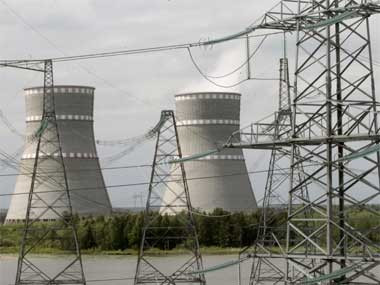Britain Spends £67.5 Billion at Sellafield to Clean Nuclear Waste
Taxpayers spend £1.5bn per year on Sellafield, says Public Accounts Committee

Britain has spent several billions to clean the toxic waste at Sellafield nuclear plant and the decommissioning costs at the site are set to rise, according to a report by MPs.
The Public Accounts Committee's (PAC) report on Nuclear Decommissioning Authority revealed that the expenses to remove the hazardous radioactive waste have so far reached £67.5bn ($106bn, €77.8bn). Taxpayers are now spending £1.5bn per year on Sellafield.
The spending watchdog added that the deadlines to clean the Cumbria site had been missed, and the country's crucial decommissioning projects are over budget at present.
"Over decades, successive governments have failed to get to grips with this critical problem, to the point where the total lifetime cost of decommissioning the site has now reached £67.5 billion, and there's no indication of when that cost will stop rising," said Margaret Hodge MP, Chair of the PAC.
"It is unclear how long it will take to deal with hazardous radioactive waste at Sellafield or how much it will cost the taxpayer. Of the 14 current major projects, 12 were behind schedule in the last year and five of those were over budget."
Earlier, Cumbria County Council refused a proposal to drill a deep underground repository to dump high-level waste in the Lake District, throwing the country's nuclear waste programme into uncertainty. This along with the new findings questions the effectiveness of the government's strategy to solve the nuclear waste problem, the report said.
The Sellafield nuclear reprocessing site in Cumbria, England, which is currently undergoing decommissioning and dismantling, is under the control of the Nuclear Decommissioning Authority set up in 2005 to oversee the "enormous legacy" of Britain's nuclear waste.
Sellafield Ltd is managing the site with the help of an international private consortium, named Nuclear Management Partners Ltd.
"Taxpayers will have to foot the bill. Private contractors who gain contracts take no risk because of the uncertainties that persist. Taxpayers are not getting a good deal," Hodge added, criticising the private consortium.
The consortium received £54m in fees in 2012, despite only two out of 14 major projects being on track, Hodge said.
The committee noted that the Authority should be prudent with the payments to private companies and ensure that the corresponding value for spending is delivered.
© Copyright IBTimes 2025. All rights reserved.






















